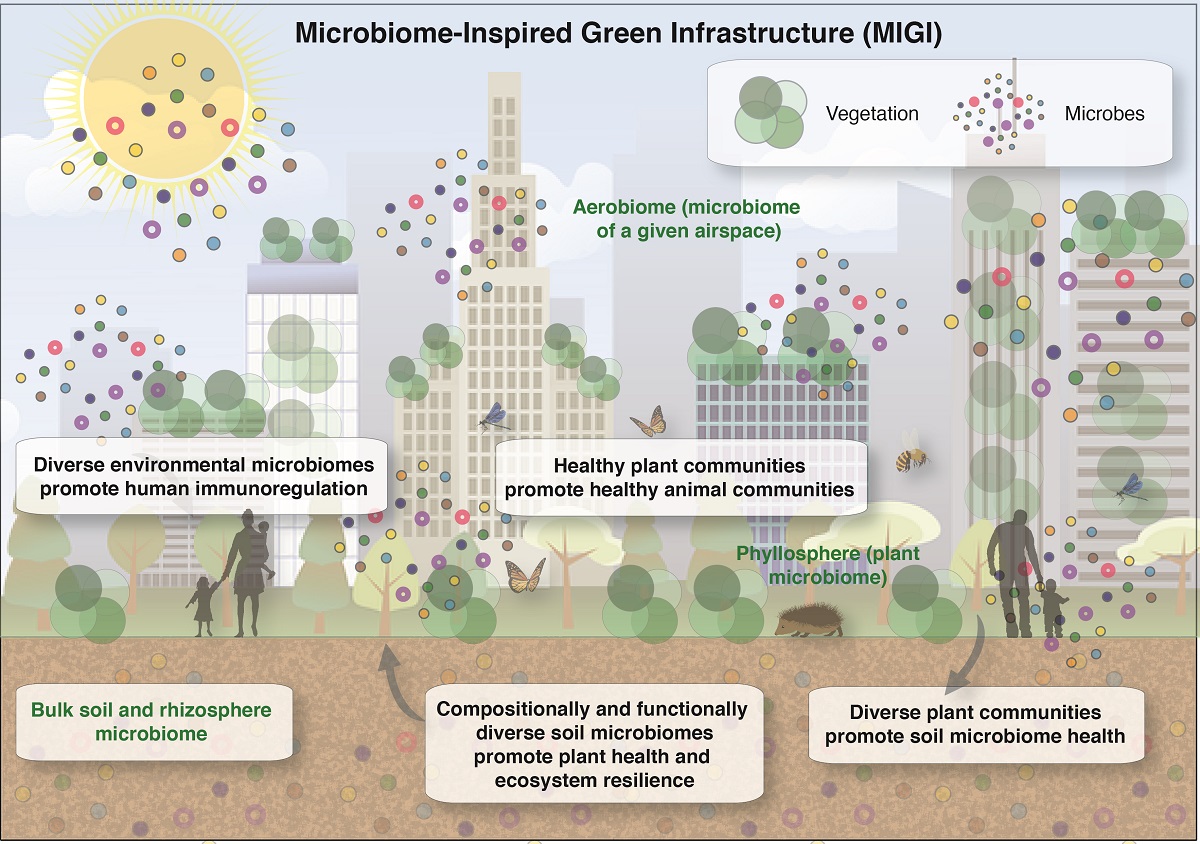Background: Microbiome-Inspired Green Infrastructure (MIGI) was recently proposed as an integrative system to promote healthy urban ecosystems, through multidisciplinary design. Specifically, MIGI is defined as nature-centric infrastructure restored and/or designed and managed to enhance health-promoting interactions between humans and environmental microbiomes, whilst sustaining microbially-mediated ecosystem functionality and resilience. MIGI also aims to stimulate a research agenda that focuses on considerations for the importance of urban environmental microbiomes. Objectives: In this paper we provide details of what MIGI entails from a bioscience and biodesign perspective, highlighting the potential dual benefits for human and ecosystem health. We present ‘what is known’ about the relationship between urban microbiomes, green infrastructure and environmental factors that may affect urban ecosystem health (ecosystem functionality and resilience as well as human health). We discuss how to start operationalising the MIGI concept based on current available knowledge, and present a horizon scan of emerging and future considerations in research and practice. We conclude by highlighting challenges to the implementation of MIGI and propose a series of workshops to discuss multi-stakeholder needs and opportunities. Discussion: This article will enable urban landscape managers to incorporate initial considerations for the microbiome in their development projects to promote human and ecosystem health. However, overcoming the challenges to operationalising MIGI will be essential to furthering its practical development. Although the research is in its infancy, there is considerable potential for MIGI to help deliver sustainable urban development driven by considerations for reciprocal relations between humans and the foundations of our ecosystems –– the microorganisms.

